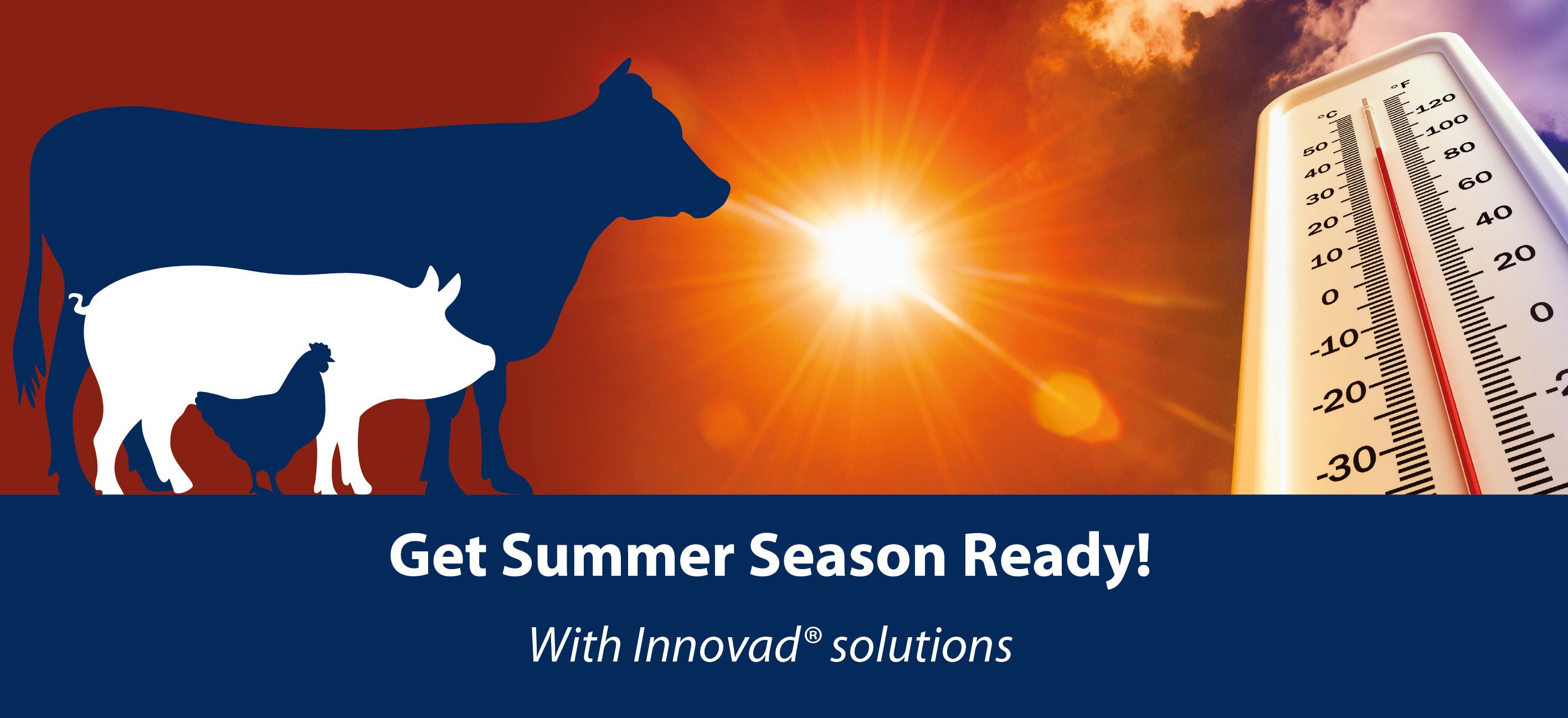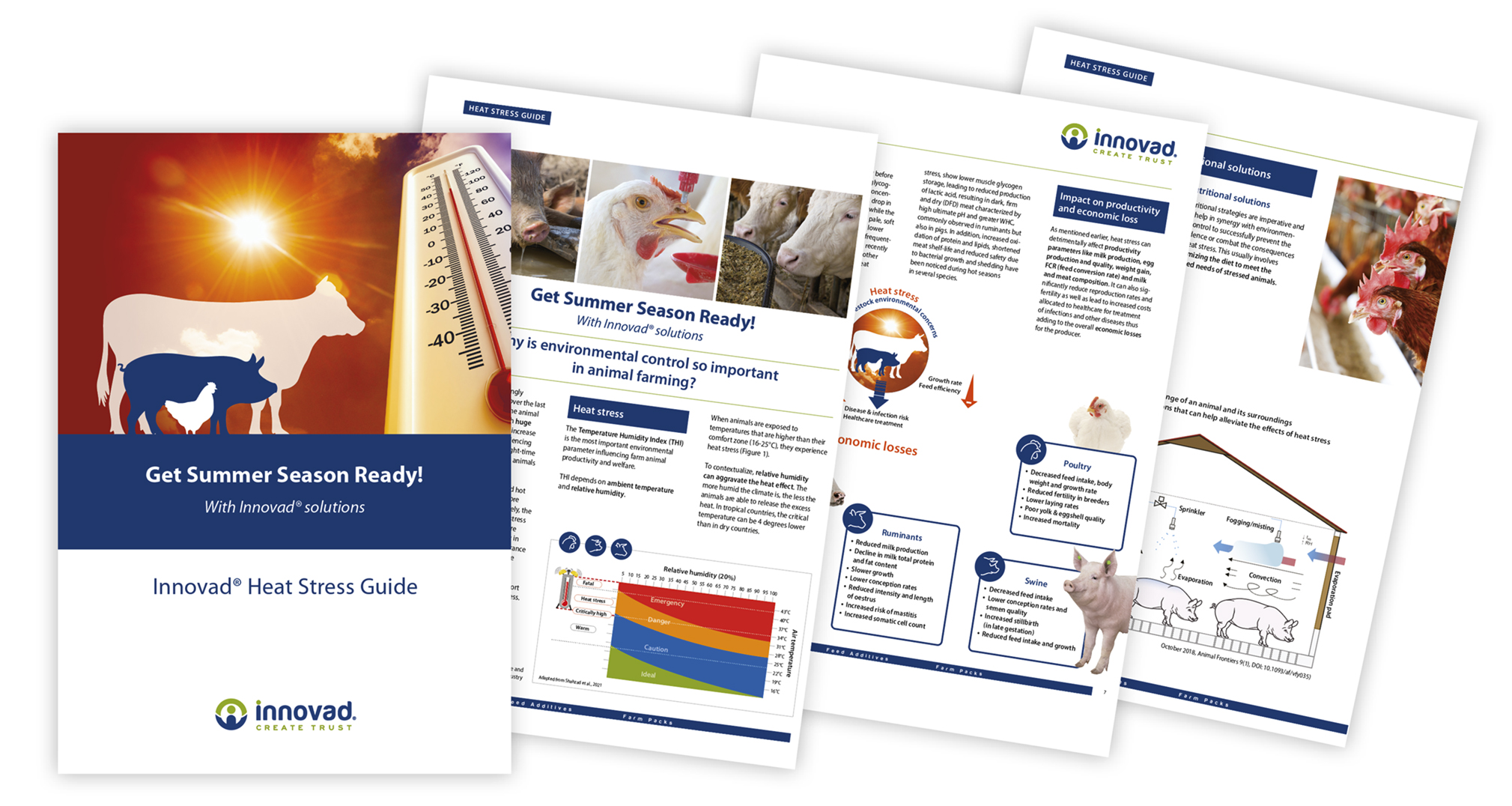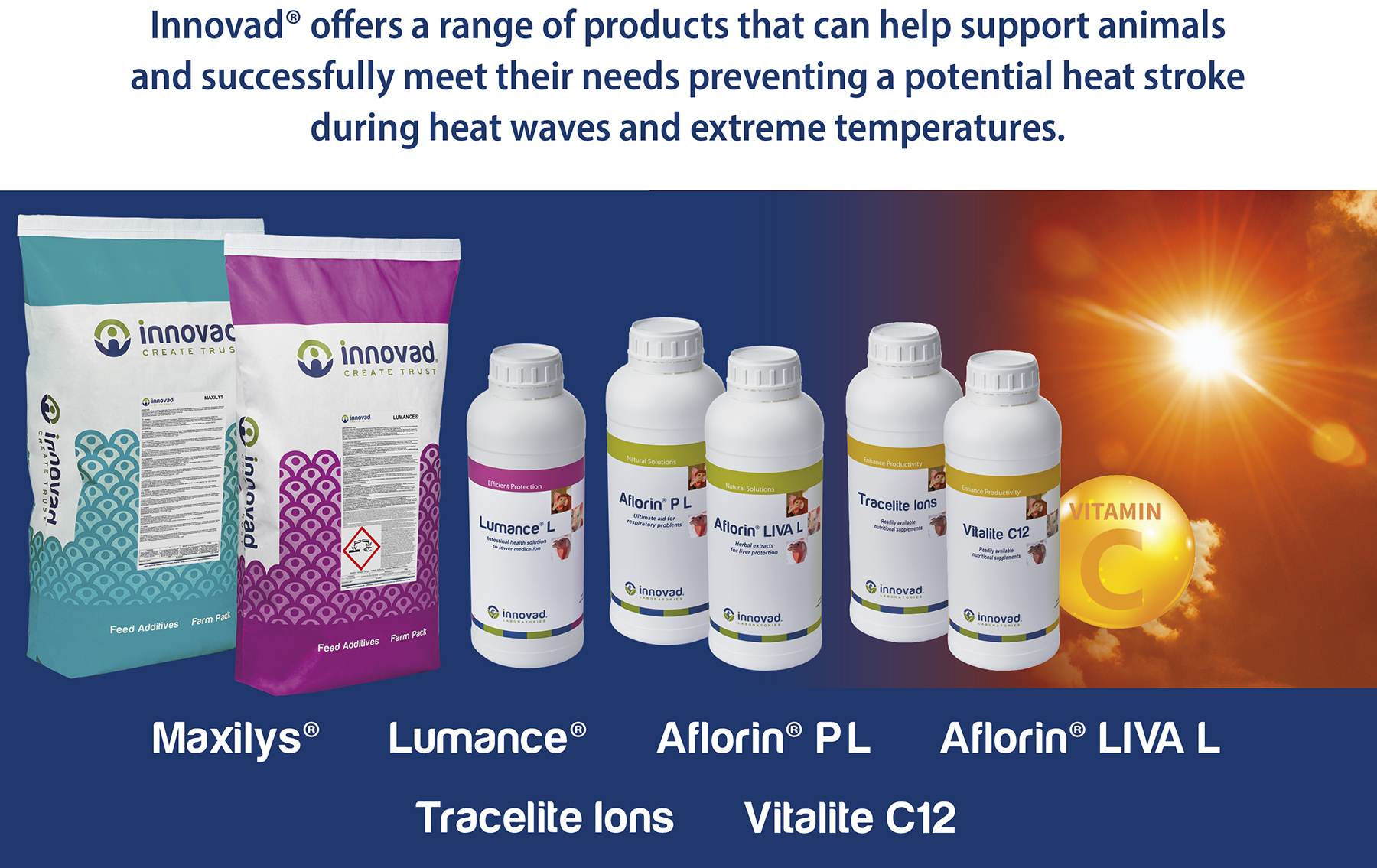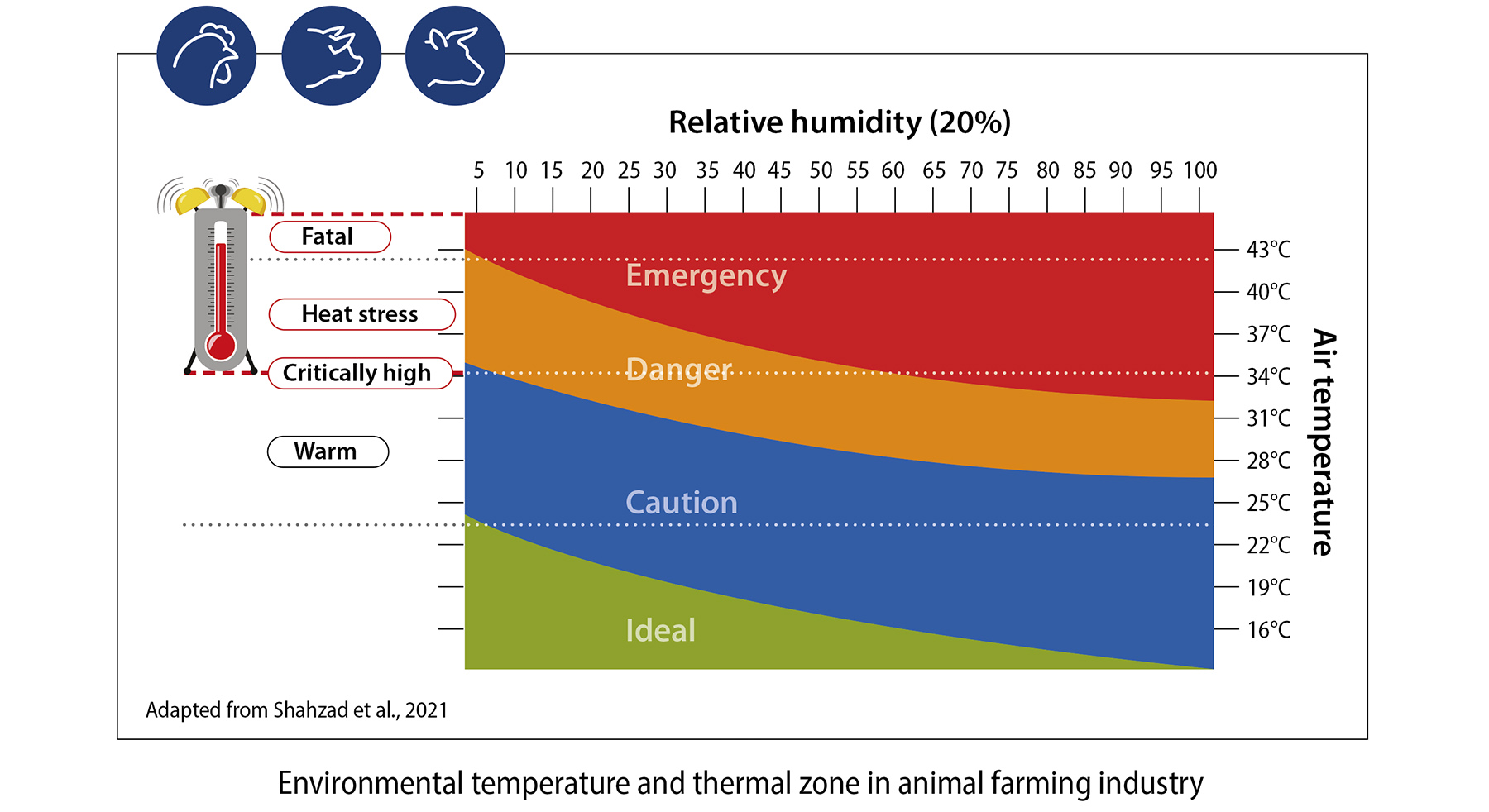
Heat Stress: Get Summer Season Ready
The animal farming industry is facing increasing economic losses due to the severe effects of heat stress, which has become more frequent and intense in the past decade. Night-time temperatures remaining high during heat waves prevent animals from cooling off, exacerbating the issue. Extreme temperatures worldwide, whether hot or cold, are contributing to the problem and it is expected to worsen in the future without addressing thermotolerance and climate adaptation practices.
Heat stress can occur irrespective of animal species, immune status, and age. The fast metabolic rate, rapid growth, and high level of production make swine, poultry, and ruminants particularly susceptible to heat stress. Swine and poultry suffer from heat stress due to the absence of functional sweat glands and inability to release heat through sweat as well as due to the presence of skin insulation provided by the subcutaneous fat in swine and by feathers in poultry. In ruminants, the heat released during the process of feed fermentation in the rumen increases the metabolic heat production and affects their thermoregulatory mechanisms.
Symptoms & Signs
Symptoms of heat stress in livestock include fast panting, increased water intake, loss of appetite and gastrointestinal disturbances like vomiting or diarrhoea.
Affected productivity and economic loss
There are numerous physiological consequences such as leaky gut, oxidative stress, metabolic consequences and electrolyte imbalance that require immediate attention to prevent economic loss, disease and even death.
Innovad® Heat Stress guide
To help our customers combat the detrimental effects of heat stress on animal health and performance, we have created an Innovad® heat stress guide. The guide provides a detailed overview of the consequences of heat stress in livestock and discusses ways in which we can support animals, maintain productivity, and prevent economic loss.
Send an email to our expert Dr. Milena Sevastiyanova, Global Technical Lead at Innovad® to request the full heat stress guide.


